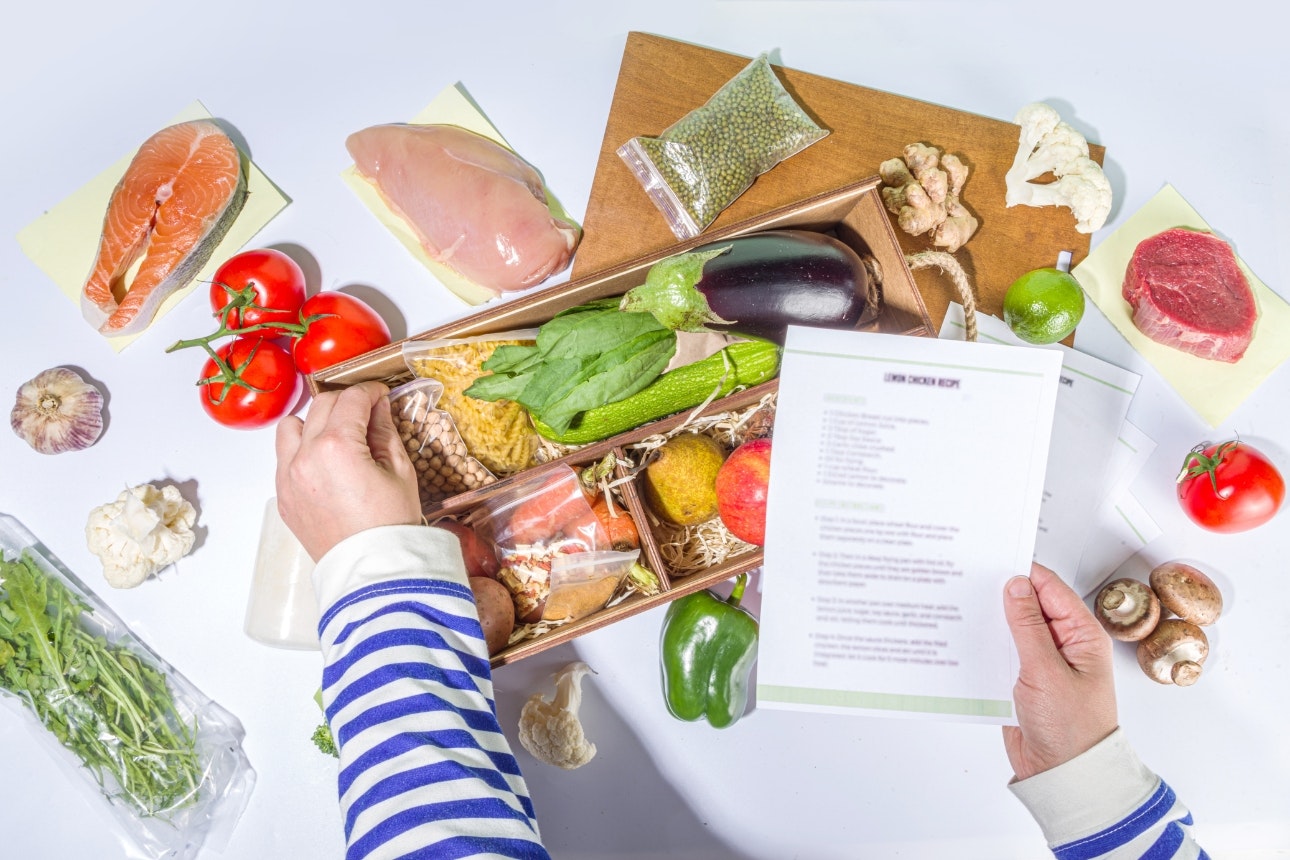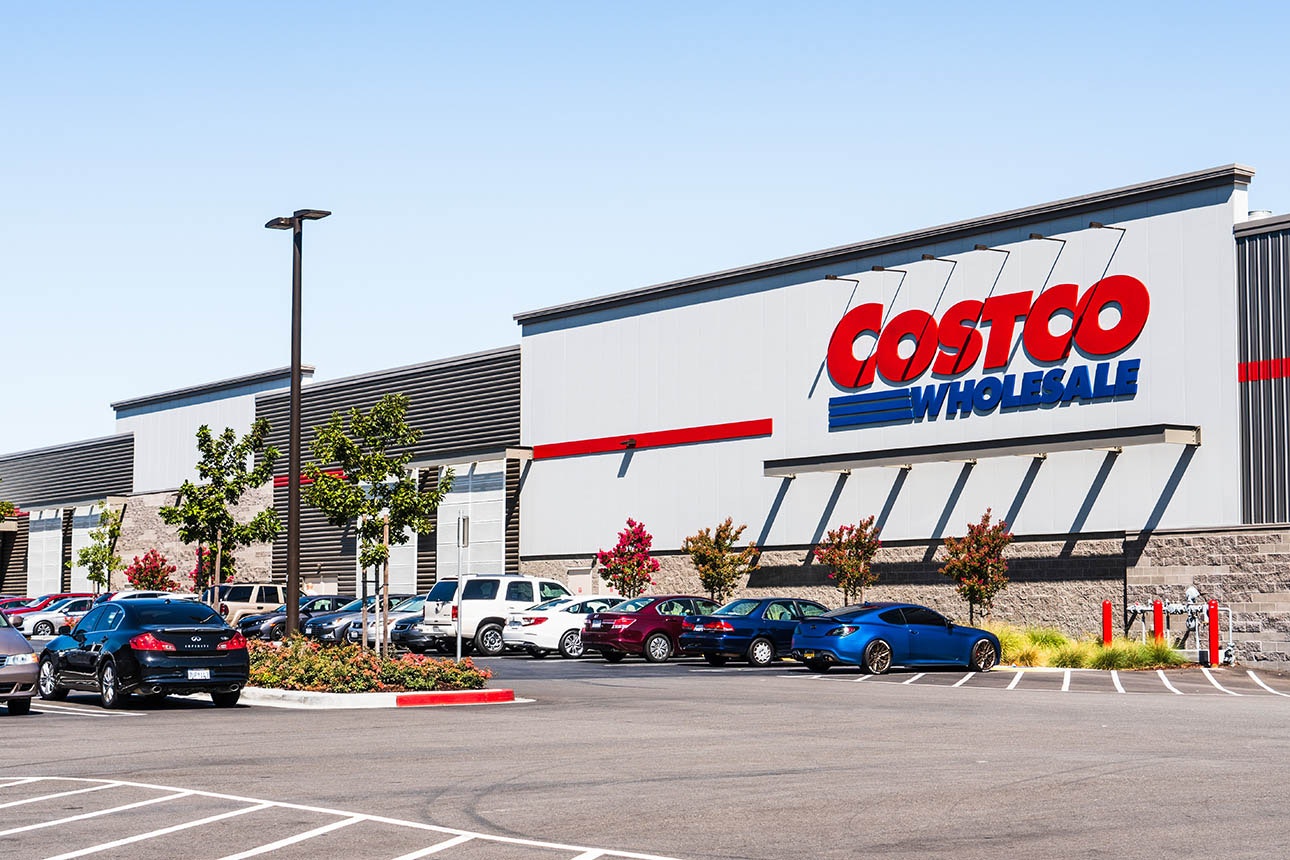
By Gemma Rasmussen
Head of Research and Advocacy | Tumuaki Rangahau, Taunakitanga
It's been 2 years since the Commerce Commission market study into the grocery sector. Are we closer to paying fairer prices at the checkout?
On this page
- A plan of action is launched
- The Warehouse – competitor against the duopoly or dwarf amongst giants?
- Storm in a cereal bowl
- The demise of Supie
- Calls for inquiry into the major Australian supermarkets
- Are we seeing enough from the grocery commissioner?
- Food and Grocery sector weigh in
- What do the supermarkets say?
- What’s the solution?
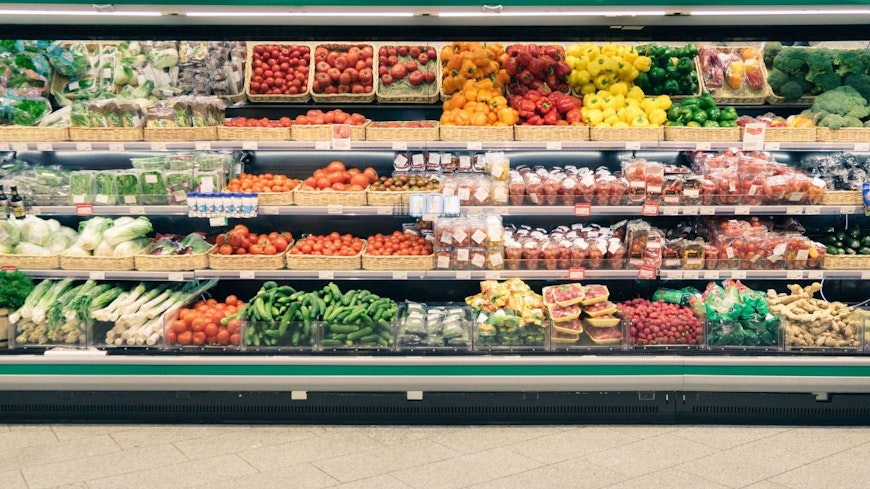
Tuesday 8 March 2022 wasn’t a good day for the most powerful supermarket players in New Zealand. The Commerce Commission delivered the results of its market study into the grocery sector, and Foodstuffs (Pak’nSave, New World and Four Square) and Woolworths NZ (formally known as Progressive) were found to have been making “a million dollars excess profit a day”; a line that rang out in the media in the months to come and left New Zealanders fuming.
Simply put, the duopoly was charging too high prices and not competing adequately, resulting in hundreds of millions of dollars in excess profits every year.
"The average return of the major grocery retailers at over 12 percent was more than double the rate of normal return for grocery retailing in New Zealand of 5.5 percent. No matter how you cut it, it’s clear that New Zealanders are paying too much for their food and groceries," said David Clark, then minister for commerce and consumer affairs.
Yet, as the results came out, there was no sheepish admission from the supermarkets that they had been price gouging. Quite the opposite! Foodstuffs’ corporate team contacted Consumer NZ and told us to stop reporting and publishing the “million dollars excess profit” figure, stating it was false and misleading – a request which we declined.
A plan of action is launched
Along with its study findings, the Commission made a raft of recommendations, which it and the government then put in motion, including:
stopping restrictive land use covenants, so new supermarket players can lease properties near the existing major supermarkets, if they wish
establishing a grocery commissioner and introducing a new grocery code of conduct, meaning supermarket chains can face fines up to $3 million if they treat a supplier poorly
introducing unit pricing and more transparent loyalty schemes
giving the duopoly 1 year to open their wholesale suppliers to competitors, enabling competitors to access grocery products at a “fair price”.
The burning question for many was whether these actions would be enough to inject some much-needed competition and push the market to offer fairer prices to shoppers.
At the time of the recommendations, Tex Edwards, founder of 2degrees and Monopoly Watch spokesperson, asserted that what was needed was another major supermarket to give the duopoly a run for their money. He was part of a group submission to the Commission suggesting that hundreds of duopoly-owned supermarkets could be sold to establish a new player.
Meanwhile, Sarah Balle, founder of now defunct online grocer Supie, disagreed with the moves to regulate wholesale supply, saying it would give “more power to the duopoly, as New Zealand’s food system becomes more reliant on the duopoly and their supply chains”.
Balle asserted the recommendations, as they stood, would not have an impact, suggesting that instead the government could fund iwi or require the NZ Super Fund to invest in an existing competitor like Supie.
“We would provide a kind of ‘shortcut initiative’ for iwi or another player, because we are already set up and ready to go,” said Balle in 2022.
The Warehouse – competitor against the duopoly or dwarf amongst giants?
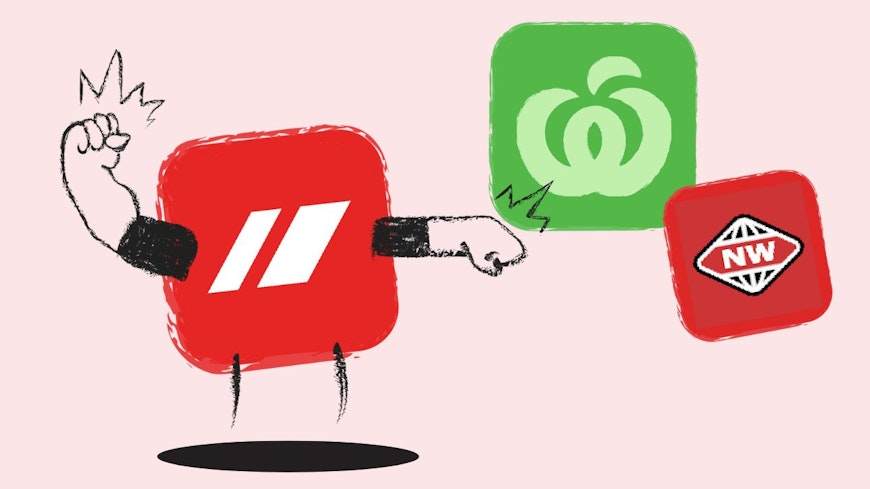
The Warehouse’s view on the state of New Zealand’s supermarkets is clear – it thinks New Zealanders aren’t getting what they need from the major supermarkets and wants to see more action from the Commission.
The Warehouse now provides some of the most competitive pricing for household staples like butter, milk and bread. In the past year, it has introduced fruit and vegetables at 22 of its stores, and in 2024 plans to expand its Market Kitchen brand and offer a growing range of products. While you can’t yet do a full grocery shop at The Warehouse, it is becoming a viable option for stocking up on food, or as a grab-and-go solution. Pricing analysis by Consumer found that, in some cases, Pak’nSave is adjusting its pricing to compete with The Warehouse, but the red shed is yet to have an impact on Woolworths or New World.
Speaking on the state of food supplies, Nick Grayston, The Warehouse Group CEO said, “We're determined to make a difference in grocery on the things that matter most. Essentials like Weet-Bix, milk, bread, butter, jam, and pasta are where our focus is. We believe that advocating for more competition in the market is essential to address this issue and bring prices down. We refuse to remain silent on what we see as unfairness in the industry, and this was reflected in the action we took when Sanitarium decided to cut off our supply of Weet-Bix in 2023.
“We want meaningful action to address affordability and competition. Kiwi families are struggling with high grocery prices meanwhile the duopoly makes huge profits and it’s not okay. The Commission have shared a list of priorities but what we really need them to do is prioritise action and take steps that see the cost of groceries come down.”
Storm in a cereal bowl
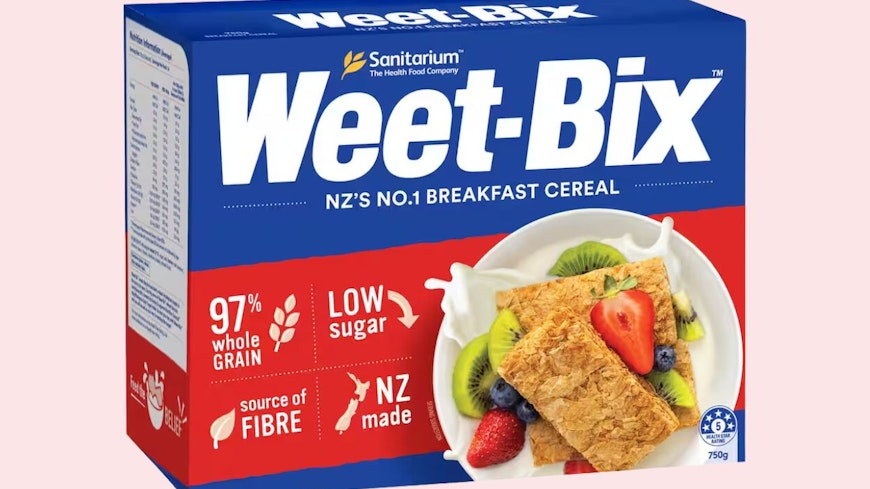
Sanitarium Weet-Bix Breakfast Cereal
In September 2023, the news broke that Sanitarium would no longer supply Weet-Bix to The Warehouse due to a supply shortage – rocking the nation and sending mainstream media into a tailspin. Given The Warehouse sells Weet-Bix at $6 for a 1.2kg box, the cheapest on the market, shoppers were understandably miffed.
Sanitarium stated that details of its commercial relationships were confidential, and its practice was "not to comment on Sanitarium's production capacities and stock levels".
Yet, speculation was rife that the major supermarkets had strong armed Sanitarium to drop The Warehouse, a claim the duopoly strenuously denied.
The news also created conversation about what smaller operators were up against, when a large retailer struggled to access wholesale supply.
Grocery Commissioner Pierre Van Heerden, who was also Sanitarium’s executive general manager for 10 years, said he expected Weet-Bix to be rationed across retailers if there were supply issues. The Commission asked Sanitarium to explain, causing it to backtrack on its decision, and Weet-Bix remaining on the The Warehouse shelves.
The Warehouse is still looking for answers, and raised the issue with the Commission in September 2023, seeking an explanation for why Sanitarium cut off its supply in the first place. It is still waiting for a reply.
Grayston said, “We think it’s important to get an answer. While Sanitarium has re-instated our supply, they’ve also increased the cost price we pay them.”
The demise of Supie
Other events rocked the grocery sector at the end of 2023. In October, online supermarket retailer Supie was placed into voluntary administration, serving a major blow to competition.
Supie founder and CEO Sarah Balle, built the company up from nothing to one employing 120 staff and servicing nearly 80,000 customers. Then a key investor pulled its funding, leaving the company for dust.
Balle told Newsroom she was grateful for the support of Supie’s employees, customers, suppliers and shareholders. “Together, we fought so hard to introduce competition in the market so that Kiwis could get a fairer deal for their groceries.”
Balle also blew the whistle on suppliers she said would not participate in the government’s mandated wholesale regime, including Fonterra, Tatua, cleaning products manufacturer SC Johnson, and food behemoth Mars. She said a large operational challenge for Supie was building relationships with suppliers and obtaining competitive wholesale prices, so it could price goods at a competitive level.
Calls for inquiry into the major Australian supermarkets
Issues with inadequate competition – and its impact on consumers – are not limited to our shores.
While food prices were up 8% in Aotearoa in 2023, across the ditch Australian shoppers were in despair, with prices up 4.8%.
"Hands off our ham. We know many Australians look forward to a Christmas ham and I want to make sure they're not paying too much at the checkout," said Australia's agriculture minister Murray Watt, as he attempted to address the cost crisis by calling for a price freeze on the Christmas staple.
Meanwhile, Coles and Woolworths posted billion-dollar profits in 2023, moving the Australian Greens to establish a senate inquiry into allegations of price-gouging by the two major grocers.
The report by the Australian Select Committee on Supermarket Prices will be published in May this year.
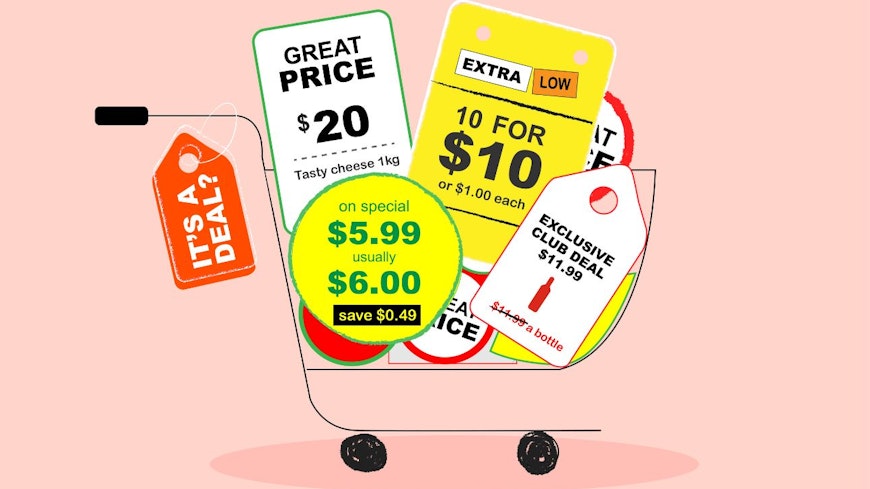
Are we seeing enough from the grocery commissioner?
Pierre van Heerden had success with “Weet-Bix gate”, but we’re yet to see a big splash from Aotearoa’s grocery commissioner.
Granted he’s less than a year into the role. Plus, 2024 promises to be significant, with his team releasing its first report into supermarket profit levels and supplier treatment – a report van Heerden claims will “shine a spotlight” on the grocery sector.
This year will also see the commissioner introducing an anonymous hotline for suppliers big and small to report on dodgy duopoly behaviour.
Food and Grocery sector weigh in
Speaking on progress in the grocery sector, Raewyn Bleakley, Chief Executive at the New Zealand Food and Grocery Council said the following.
“NZFGC has long advocated for competition reform to address the concentration of retailer power in Aotearoa New Zealand because it has many challenging impacts on the suppliers we represent and consumers. Our members supply products that consumers purchase from the supermarket shelves every day. We knew the reform would take time to affect the complex market and while the legislation is now in place it’s important there was a six-month grace transition period which ended at the end of March.
“It’s now a requirement that supermarkets offer code-compliant contracts to suppliers, and we have been very active in supporting our members by raising issues where needed with all three retailers and the Commerce Commission. If at the first opportunity the now regulated retailers effectively offer contracts with all the new protections removed, in our view this would not achieve the intended outcomes of the reform. The protections the Code provides need to remain available to suppliers - otherwise, the Code won’t be as effective as it should be, and as New Zealanders need it to be. The work continues and we expect further developments. This will all take time and we’re here for the long haul to make sure we serve our members well and in doing so consumers have access to a great range of products at fair prices.”
What do the supermarkets say?
Woolworths NZ
“We actively engaged and played a constructive role throughout the Commerce Commission's market study process and we supported all of the Commission's recommendations. Subsequently, we have worked constructively with the Government as they have moved to implement those recommendations.
We’re proud to have been independently ranked as the best supermarket retailer to do business with by suppliers for the past three years.
Foodstuffs
Changes our Co-ops have made to address the Market Study’s findings and intent of the Grocery Industry Competition Act, include extending wholesale supply to other retailers, adopting the grocery supply code, improved engagement with suppliers, simplified pricing tickets, rollout of unit pricing, and making our loyalty and rewards programmes easier to understand. Our drive to achieve greater efficiencies for customers’ benefit is one reason why our North Island and South Island boards have proposed merging the Co-ops into one.
What’s the solution?
New Zealand’s grocery sector is complex and arguably not particularly competitive. Since the Commission’s grocery market study, several suggestions for creating a more competitive market and providing fairer prices for shoppers have been floated, including:
Margin transparency
A Consumer investigation heard many small suppliers calling for transparency over the prices they sold their products to supermarkets for and the subsequent price mark-up. Some said they had seen supermarket profit margins creep from 20% to 40% in the past 15 years, making their businesses barely tenable. “They hold all the power,” one supplier said.
Net net pricing – Nick Grayston, CEO of The Warehouse Group, supports net net pricing. “To make groceries more affordable we need equality on net net pricing (so the cost of goods sold once all rebates and promotional support has been accounted for) and at the moment it is very opaque. Transparency on margins is important and we need the Commerce Commission to help us make this a reality.”
Kiwi (or iwi) shop
Supie founder Sarah Balle called for government assistance to create a partially state-owned third player big enough to compete against the duopoly. At present, o existing supermarket can compare in size – Aotearoa’s third-largest grocery retailer is currently convenience store Night ‘n Day.
An international player
Bringing in a third player, with deep pockets, existing wholesale infrastructure and the ability to be present across the motu, has long been heralded as the best way to make the duopoly compete. Hopes were pinned on German supermarket Aldi, which set up shop in Australia in 2001, and is now its third-biggest player. However, an Aldi spokesperson confirmed in June 2022 that it has no plans to enter the New Zealand market.
Forced divestment
When the grocery market report was released, the government of the day indicated it would not be afraid to force divestment, if other solutions failed to fan healthy competition. Hypothetically, this could mean the forced sale of some duopoly stores to a third player, or the mandatory separation of wholesale and retail operations, meaning the major supermarkets couldn’t control both parts, thus weakening their power.
Follow the course
A new grocery commissioner, intensive reporting on supermarkets’ behaviour and profit levels, codes of conduct for suppliers and supermarkets, and much more – we’re 2 years into this game and progress is slow. Hopefully, 2024 will indicate whether these moves are working, or if the duopoly remains deeply uncompetitive and excessively profitable.
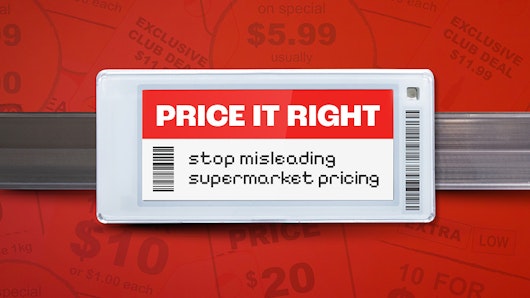
Make supermarkets price it right
Find out about our campaign to tell the government we need clear rules, stronger penalties and automatic compensation for shoppers.

